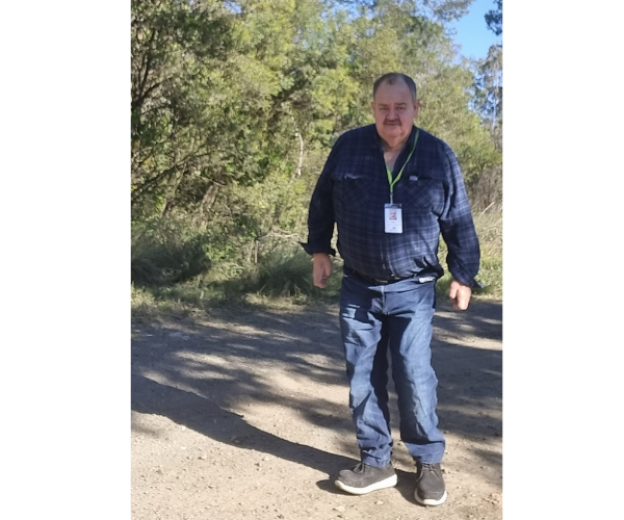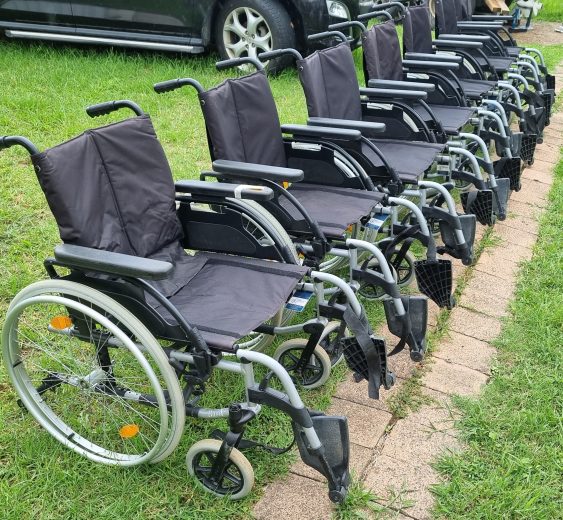Speaking to another amputee can make a real difference to your recovery and ease your concerns. We call this type of assistance Peer Support.
Following surgery, you will need time to recover. It is also a time to set goals about your journey ahead. Here, we help to guide you through the process to navigate your pathways forward.
Effectively managing your short and long term health will lead to better outcomes and prevent future problems.
Getting the right kind of prosthesis to suit your lifestyle needs and daily level of activity is important.
People are often concerned about the costs involved in getting a prosthesis. In Australia, there are a number of different funding schemes and it can be easy to get confused and to know what you are eligible for.
Home / Peer Support / Personal Stories / Profiles / Jeff - Peer Support Volunteer and community contributor

At the time, I had to change hospitals and surgeons, but I had, and continue to have, some of the best people on my healthcare team. The difference this makes post-surgery is not fully recognised, and sometimes they need to be reminded how appreciated and important their input is. Thanks, Pauline, Lauren, Craig and Tim.
Whilst in hospital, an innocent trainee asked me if even though I had a prosthetic leg, did I still have my own, real foot? At the encouragement of an experienced nurse I explained how I lost my leg and after giving them the basics, I alluded to the fact that my dog loved the bone. Their reaction was priceless, especially after suggesting that I could do it because it was my own leg! You have to maintain a sense of humour in hard times!
In my daily life I try to remain active, and I keep in regular contact with all the ‘iatrists’ and ‘ologists.’ For me, they consist of my physio, podiatrist, prosthetist, endocrinologist and my GP. I also pay close attention to my mental health. I’m my 88-year-old mother’s carer and a Justice of The Peace, amongst other things. For me, a great day can be simply tinkering in the shed or just a drive in the bush. Life doesn’t have to stop if you become an amputee. My ‘normal’ days can include a visit to the gym, a trip to my prosthetist to trial a new hydraulic foot or to cast a new socket, or to have a BROKEN check socket attended to! I also regularly attend Justice of The Peace meetings, amputee group meetings, inductions/registrations where my local amputee group are registered volunteers, the list goes on.

Now to Peer Support, and why I volunteer. In my initial rehab hospital stay, I was fortunate to share the ward with an above knee amputee, who is a great communicator and his energy no doubt made me more active and focused at the time. He remains a good friend to this day. Being known as ‘The Lord of the Ward’ he unknowingly encouraged engagement and interaction with many patients including myself in my new ‘amputee world.’ Thanks, John! Myself, and other amputees in the hospital had no access to formal peer support, but luckily, I’d received some great resources from an excellent staff member, so we at least had those to share. Thanks, Mia! This sparked my interest in being there for others and I found Limbs 4 Life. I trained and came on board as a Peer Support Volunteer. I have since spoken with many clients, both pre, and post amputation, who I learn so much from, which in turn helps me.
Due to only being an amputee for a short while, I often feel like a fraud, simply because I feel that I have had so little trauma compared to many others. Whilst I experience mostly the same challenges as other amputees, I think it’s all about perspective. I’m lucky that I am only a below knee amputee rather than above knee, or bilateral or quad. And even with my dodgy, diabetic, arthritic, neuropathic hands I feel privileged to have them.
Even though I’ve only been a Peer Support Volunteer for a short time, 3 clients that I visited have since become Limbs 4 Life Peer Support Volunteers themselves. Hi, Clay, Lee and ‘Saint’ George! A huge benefit is also being able to correct misleading comments, which can cause distress to individuals and families. Whilst we do not provide medical or prosthetic advice, the lived experience we have and can share is something that only actual amputees can. On several occasions I have had to disagree with information provided by well-intended professionals that caused unnecessary concern and stress. Instead of saying ‘can’t,’ when speaking with new amputees, I prefer to use words such as ‘maybe’, ‘possibly’ and/or ‘I don’t know.’
Keep up to date with our latest news, events and information
